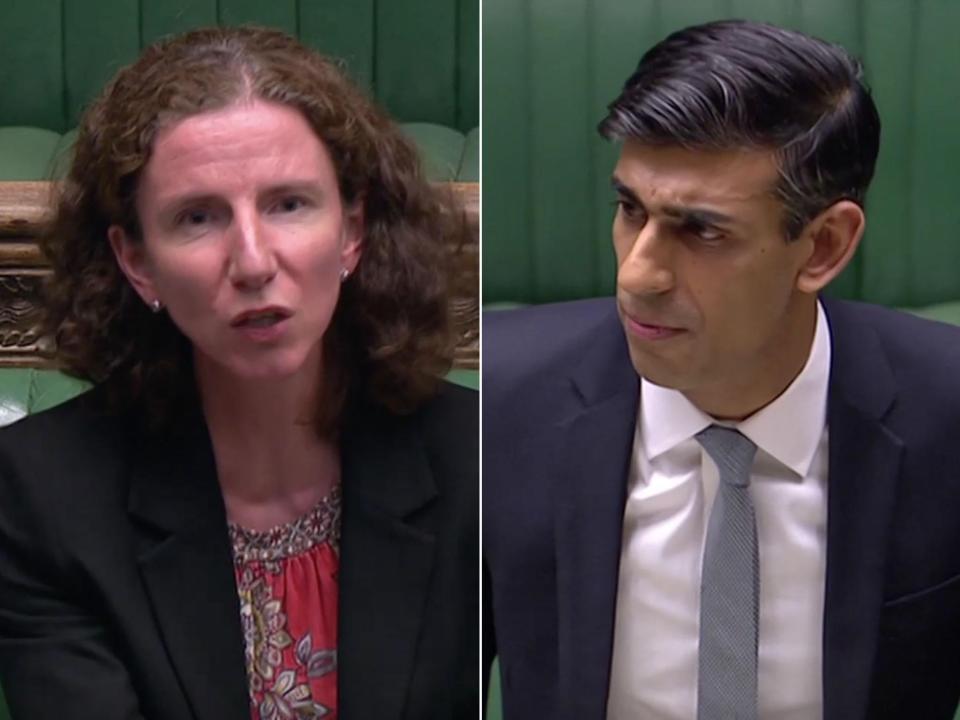Cheap dinner dates are great, but there's a danger young people will be forgotten after six months

I always worry when my wallet benefits from anything that the chancellor announces, I am just not sure I need the help. However, following the announcement of up to a tenner per person discount when eating out, my husband is already planning to eat out every Monday, Tuesday, Wednesday for the next six months. Seeing as he does all the cooking who could blame him?
I imagine, Rishi Sunak was convinced this was a good idea by the possible viral marketing it might do for him: over the next few weeks group selfies will appear on Instagram and Facebook, with people holding their pint aloft to the chancellor in thanks as if he, rather than they as taxpayers, is personally taking them out on the tiles. We will all be doing the washing up in the long run, as there is, after all, no such thing as a free lunch.
While I don’t personally need the stimulus to encourage me to eat out, I really hope that this effort does help to give a boost to the hospitality industry. Hundreds of my constituents work in the restaurant trade and it is work largely done by people on low pay with insecure employment. It is across the board in all that the chancellor announced on Wednesday where we must keep, not just job creation, but long term job security at the forefront of our minds.
The government’s “kickstarter” job scheme will cover the cost of 25 hours’ work a week at the national minimum wage for 18- to 24-year-olds for the next six months. Youth unemployment is one of the biggest areas of concern to come out of this crisis – let’s face it, it was a problem before the virus. I am in full support of this initiative, which seems very familiar to me as it is almost exactly the same as the Future Jobs Fund launched by the last Labour government in the aftermath of the global banking crash.
The coalition government scrapped the scheme very early on in their tenure, with David Cameron claiming the scheme was “expensive, badly targeted and did not work”. I seem to recall that Iain Duncan Smith, in his time as the secretary of state for work and pensions, argued that anyone on the future jobs scheme should still be counted as unemployed, which I am pretty sure is not something that Rishi Sunak will be encouraging. Funny how things end up I guess.
What we have to ensure is that after the six month injection of investment into youth unemployment and cheap dinner dates, we don’t just see a cliff edge for young people and those on casual contracts to fall off. I know a pandemic might have come as a bit of a shock, and so a reactionary crisis mode in some areas cannot be helped, but for a long time there has been a need to address the issue of temporary, casual, agency employment that leaves too few people, young and old alike, being able to properly plan for their futures, let alone save for them.
The government has throughout the crisis been too slow to plan – from the care home crisis, the lack of PPE, and children still largely out of school, to a slow and not very steady test, track, and trace system. Thinking ahead and planning for what happens next seems to have given way at every stage to patching up crises and looking around for someone else to blame.
There is a real need for us to think about what the future holds, and think beyond a rolling six month deadline. How do we build a caring economy for an ageing population? How do we ensure the UK is at the centre of a green economy? How do we look at the future of work and family life to get everyone working and spending? I note today that Rishi Sunak did not answer the call of hundreds of childcare providers about to fall over. When I was 18 to 24 I had a job and a baby. Without childcare, I’d just have had a baby. Helping people go to work is not a one-size-fits-all deal.
In the areas of care, technology, and environmental innovation, all have the possibility to radicalise the job market and the welfare of our citizens. Rishi Sunak didn’t answer any of those questions today. As Annelise Dodds pointed out to him in parliament, he just pressed pause on them until another statement in the autumn. Long term recovery and protecting millions of people’s precarious jobs maybe doesn’t make such sharable content on Twitter, but when on almost every street in the country people will go to bed tonight unsure about the safety of their jobs, it is what is needed. Fail to plan, plan to fail.

